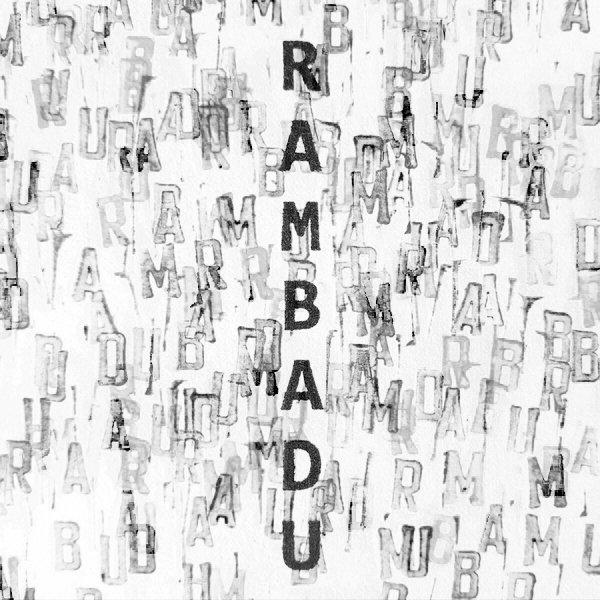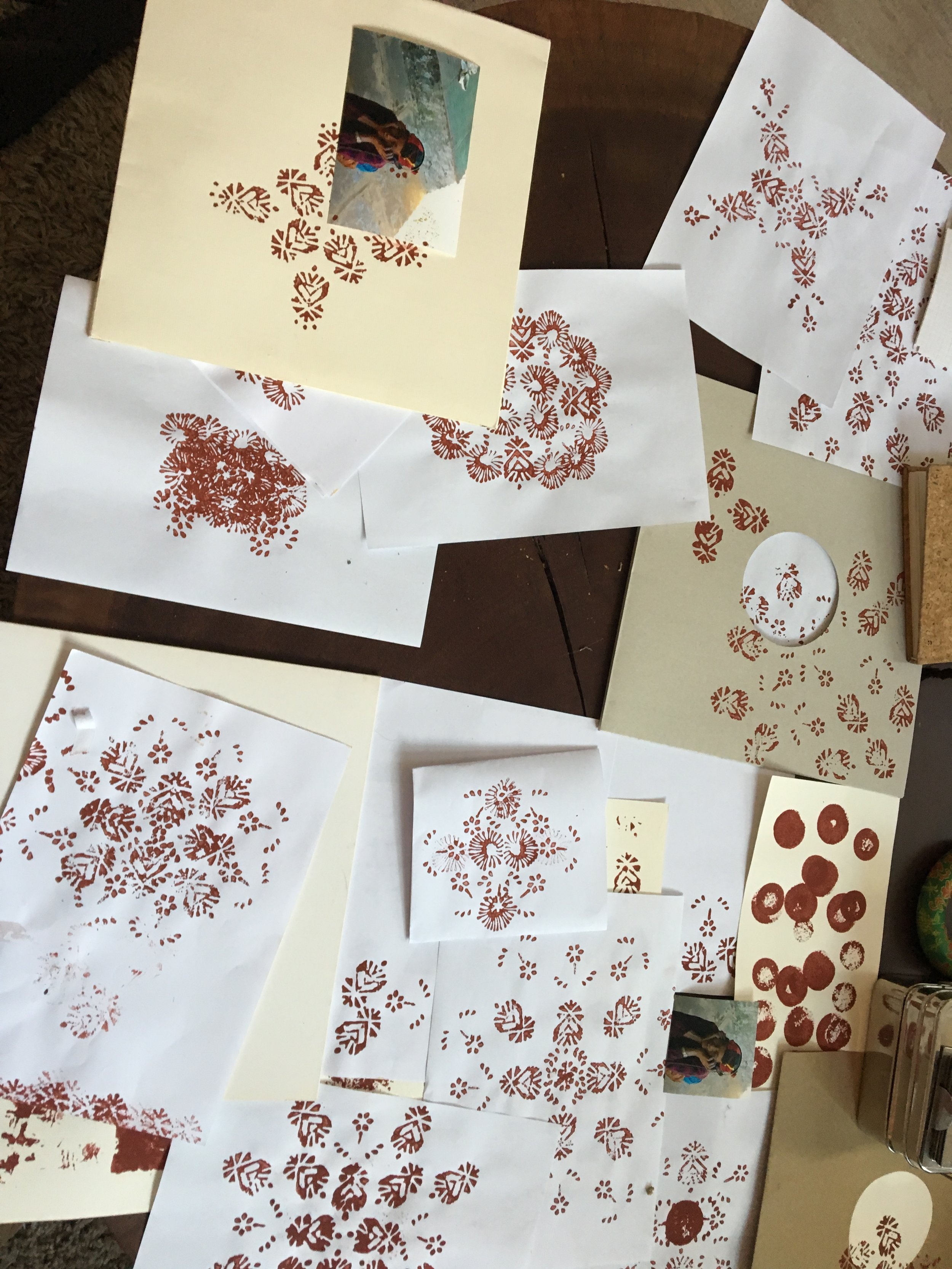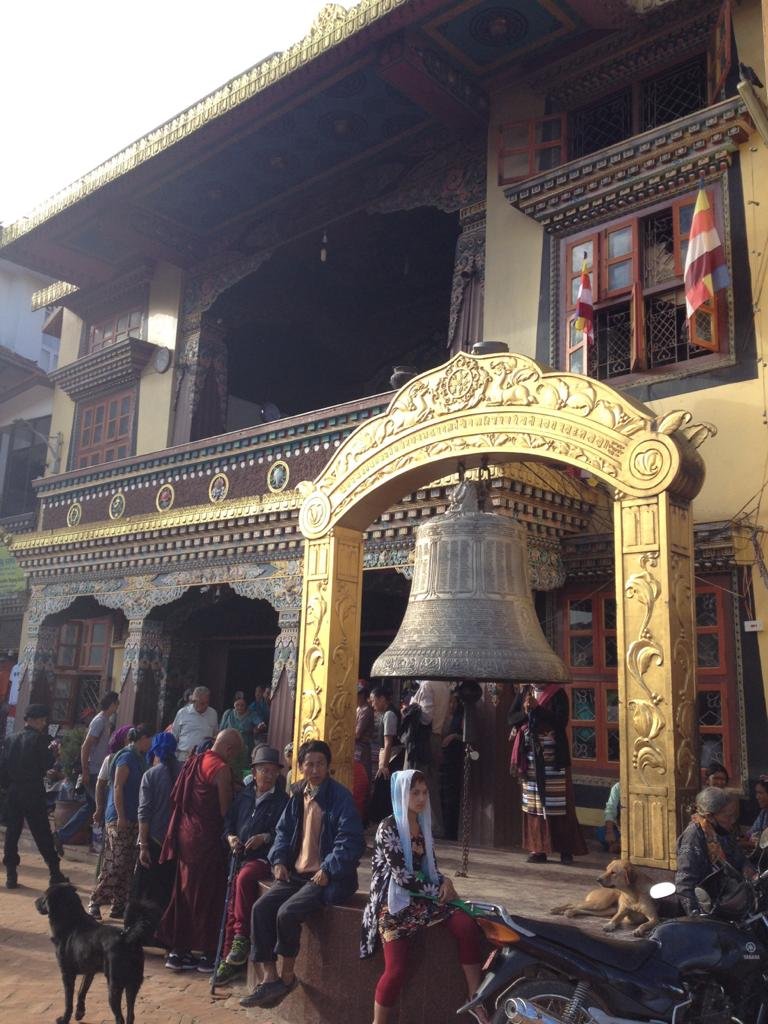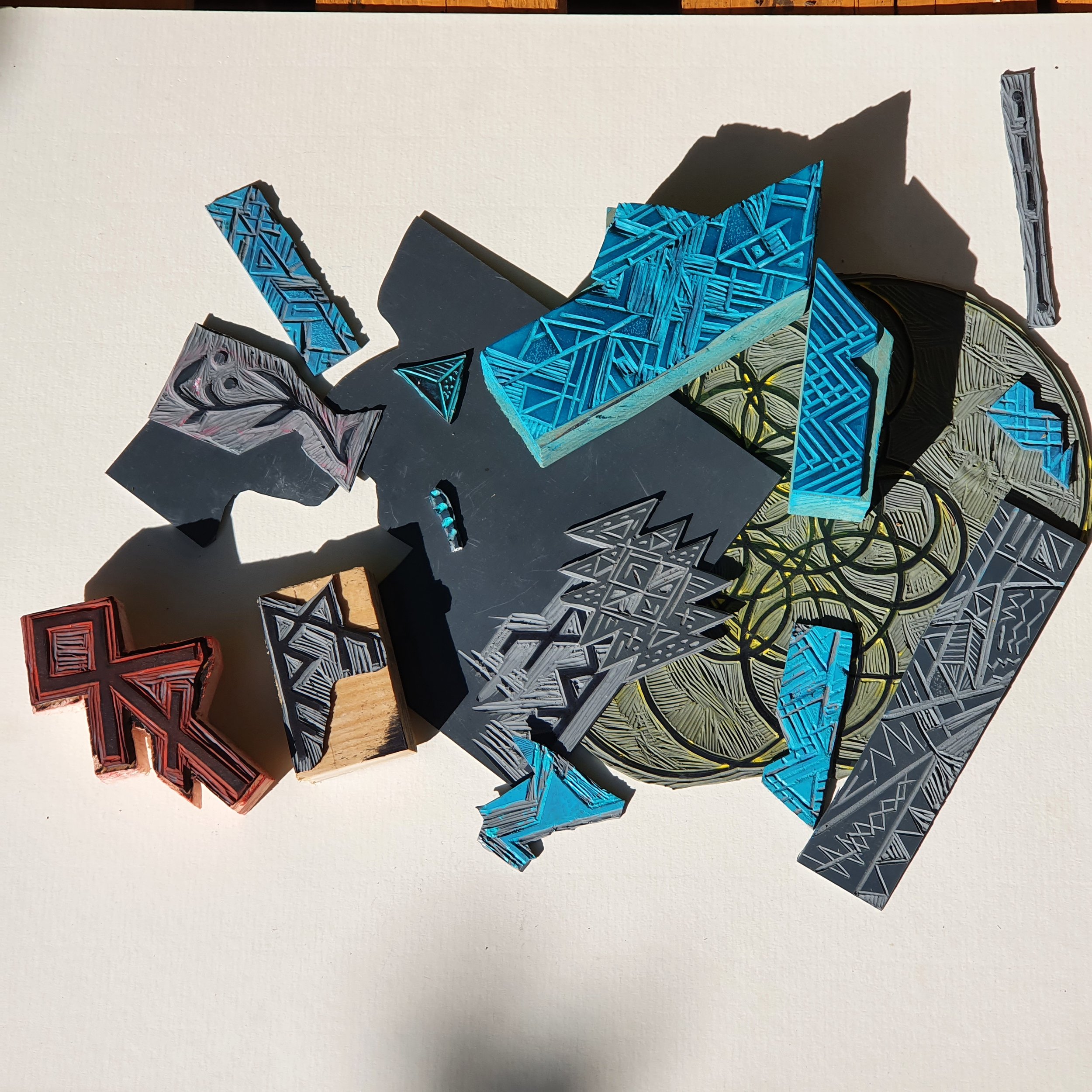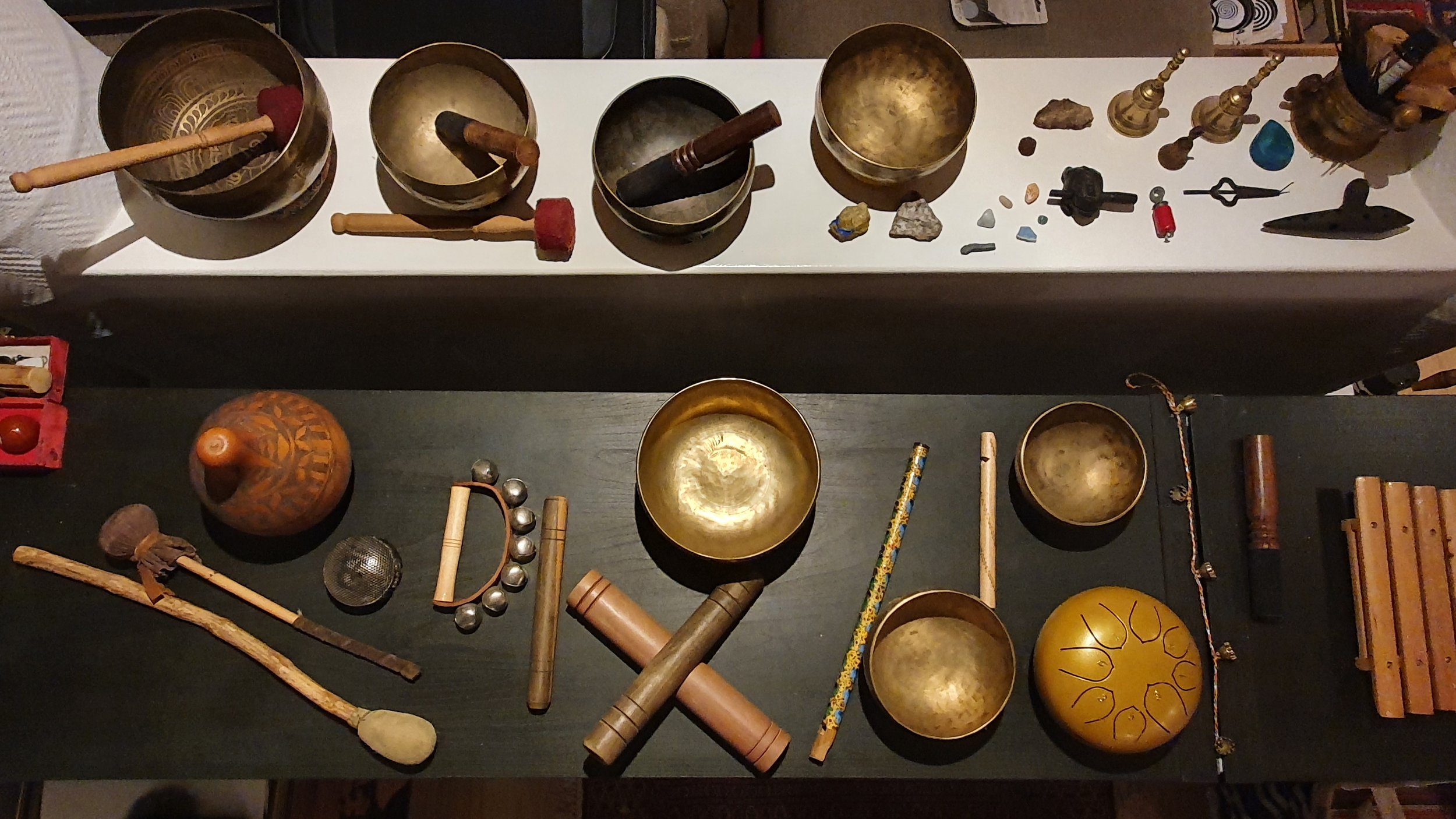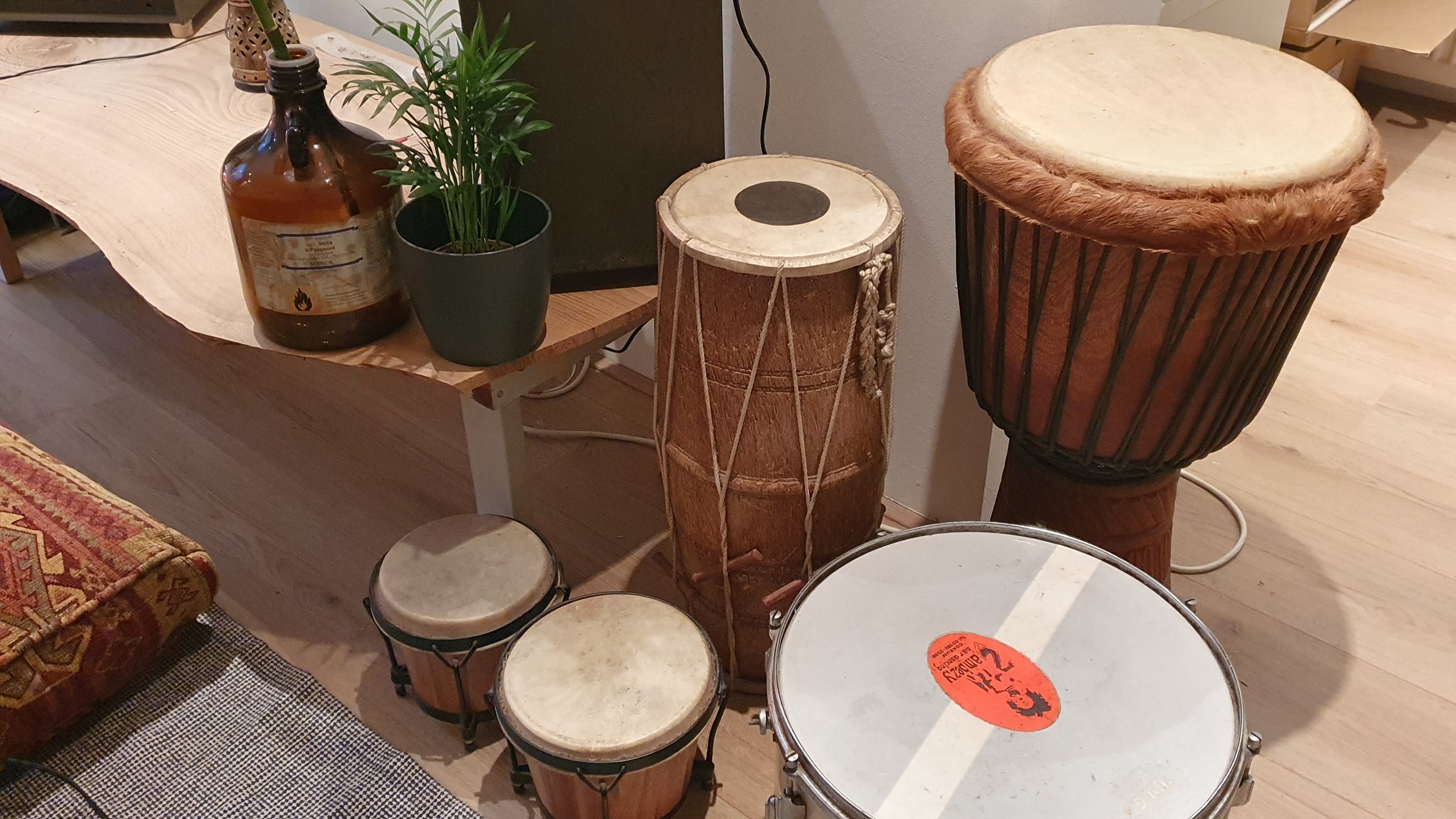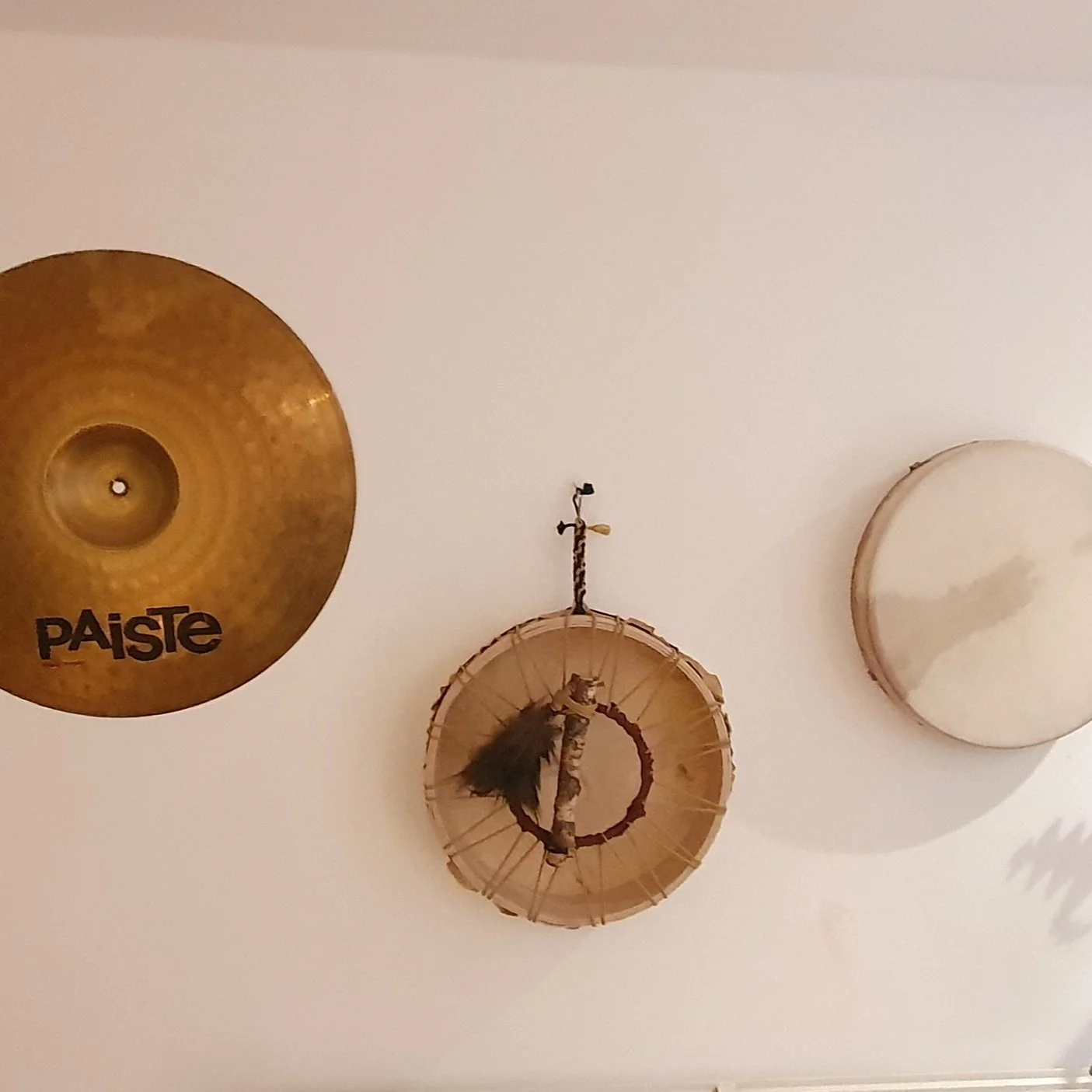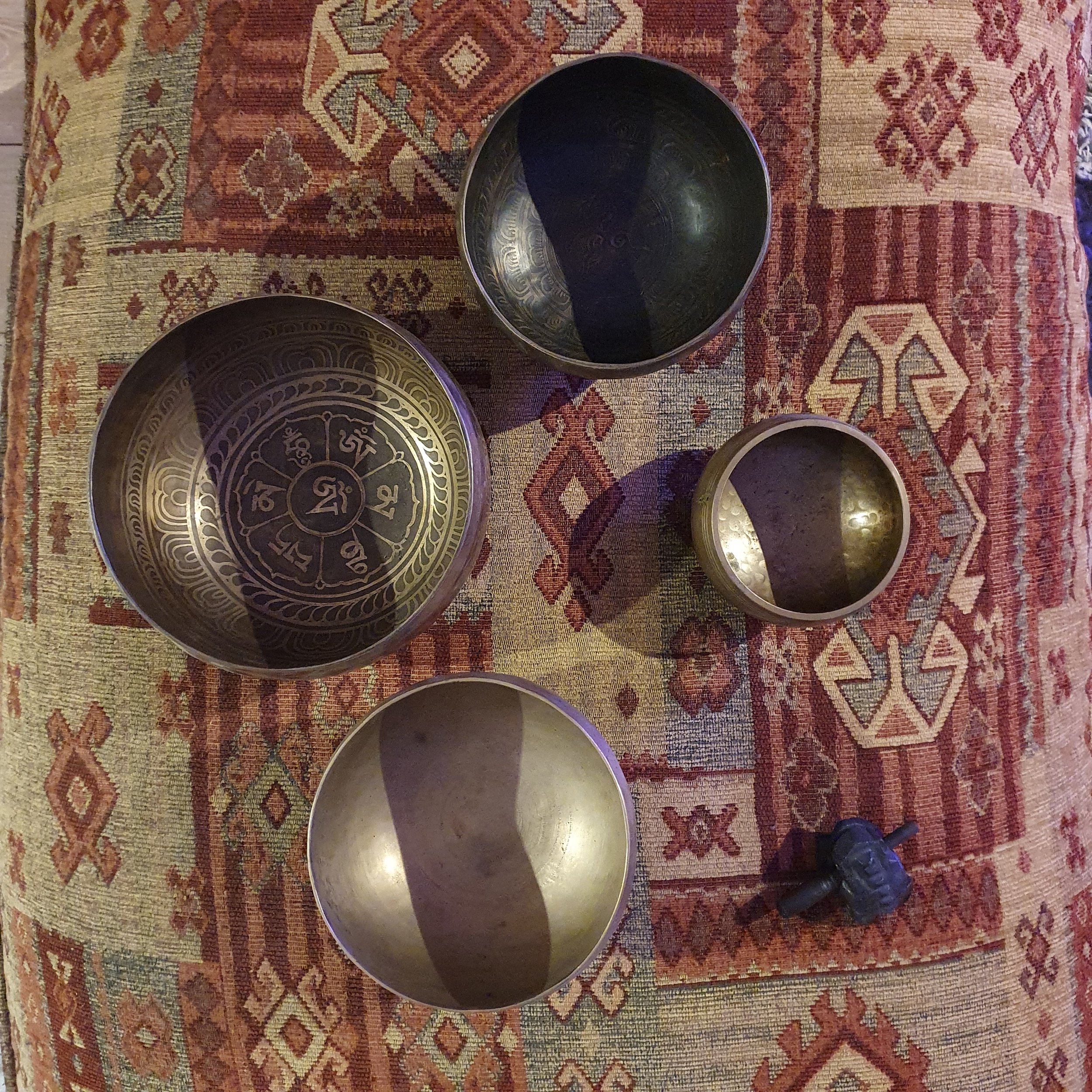In Conversation with: Rambadu
January is one of my favourite months, so this year I decided to treat you all with some more special content. It’s two weeks into the new year and we are already working busy schedules, and going about our routines. What better way to kick back from all that than enjoying an interesting article while listening to a masterful mix?
I had the pleasure to invite Paul also known as Rambadu, who is a Dutch DJ, Producer and a label owner born and based in Rotterdam, The Netherlands. Paul is a bright presence in the music scene, with unique and beautiful sound contribution especially within hypnotic techno. We sat down for a chat where Paul shared a lot about his own label, studio setup, some gear talk, the Rotterdam music scene, and so much more! Stick around to find out more about this genuine person, and as usual discover new amazing music.
The beginning and the Australia chapter
‘’I got into DJing when I was 17, but I always had a strong interest in electronic music as I listened to trance, hardcore and even old school techno. A friend of mine was using virtual DJ with a simple controller and I had a lot of fun with it. At that point I started playing around at another friends’ bar in Rotterdam and it all worked out pretty well despite me not really knowing how to count. I was just pushing play when it felt good. A few weeks later we were at the infamous Bootleg DJ Café in Rotterdam, and one of the artists didn’t show up, so I was asked to step in and I went for it. From that moment on I got invited to play more parties by these organizers.’’ What a fun way to enter the music world, I say with a smile and Paul goes on to share ‘’Yeah! I actually needed a crash course in the rules, because there were times that I would make mistakes, and there was no one to tell me how it’s done. Looking up to older artists and asking a lot of questions contributed to me learning a lot.’’
Hearing about Paul’s diverse music influences from a young age, I couldn’t help but wonder what was he actually playing when he started as a DJ and how long did it take him to arrive at where he is at within hypnotic right now? ‘’At the Bootleg DJ Café lot of house music, progressive and techno was played. The bigger techno artists that come from Rotterdam have played there. My interest has always been with ‘’weirder’’ kinds of music as opposed to mainstream. I did play a bit more upbeat, but if I think of it now, some of the music that I play now is also music that I played back then. These tracks are the ones that back then didn’t really ‘fit in’, but I did like it. Now it’s gone to the point that they have found their place.’’ It’s interesting to see how certain fascinations remain with us even if we don’t dive right into them from the start. What Paul has gone through is quite a normal process for every artist when it comes to the taste evolution and sound experimentation, especially having started so early on. I was wondering when did producing come into Paul’s life and whether this was something he was equally engaged with as with playing?
Paul, Rambadu
‘’Playing is what sparked the interest for making my own music. A few months into it, I felt the need to not only play other people’s music, but have my own input and my own sound, so it began. I’ve always had it in my mind to do more live performances, for example than DJ sets. I am on the journey to develop that right now. I love it and it’s my dream to have it fully within my own hands, so it’s really ‘all you’, you know? ‘’ In fact, I do understand the feeling that Paul describes. After all, creating this platform has been somewhat motivated by that same need for self-expression and putting my own ideas forward without any limitations on how to implement my vision. Although Paul hinted at his future projects, I want to take a step back and learn more about his journey as a producer and how he got to creating his label.
‘’I’ve been producing for about 10-12 years, and actually 3 years ago I was able to finish a record I was satisfied with. This was a pivotal point and also a reason to start my own label. During my years as a DJ, I started playing around with Fruity Loops, but I didn’t really understand how it worked or how to even make something like a loop. A friend of mine was making hardcore in Ableton, and I had a lot of sessions with him, where he taught me how the program worked. I am not a trained musician so there was a lot to experience and explore by myself when it came down to the actual rules of music making. Once I got a bit more comfortable, I started making these long loops in arrangement view starting with four bars, and then duplicating and changing something. I could make some pretty interesting loops, but they always stayed in the loop. That went on for quite a while, and I just did it because I enjoyed it, not because it was my mission to become an artist. I did not necessarily think of that then, it was just something I enjoyed doing and it was interesting to see what comes out of you as a human. I got to a moment, where I got stuck – how do I move forward, how do I make an arrangement and so on? This came right at a moment, when I was at University studying Event Management due to my strong desire to organize my own parties one day, and I had to do an internship. Unable to find something in Holland, some friends that were road tripping in Australia met this guy who was running a music label in Melbourne. It seemed like a great opportunity for that specific moment, so I got in touch and got the job!’’
What a funny thing destiny is?! Everything really comes in its right time. Not trying to force things leads us to the moments that we were meant to live and Paul’s story really confirms that belief of mine. Mesmerized by the dynamic of his life, I continue asking about the ‘Australia chapter’.
‘’The label – Chameleon Recordings, was one of the big players over there. Artists like Secret Cinema, and Carl Cox have been collaborators, and Egbert, Petar Dundov and Nicolas Masseyeff have appeared on the catalogue with remixes among others. The owner of the label Steve Ward, who actually hired me, did a live side project to Caribou and remains distinct from his studio work as Caribou or as a live act with a backing band. Membership appears to be fluid, with Kieran Hebden and James Holden having performed as part of the ensemble. He is a great pianist, and I owe him a lot of respect! At first, I focused on digital marketing, and promoting the releases, while he was open to see how it will all develop. I also got to play around with gear at the studio, which was pretty cool.’’ I bet it was! I imagine how Paul was sitting there happy like a kid in a candy store, learning all about that gear through experimenting. I appreciate the fact that he got a chance to learn more about the music business, how it works and what it involves next to being an artist. That is all a valuable experience, which I believe is essential for artists especially nowadays since they are practically entrepreneurs – running their own brand, releasing music, running labels, taking care of growth, communication, bookings, etc.
‘‘One of the greatest lessons that I learned while working at the label was that, with the right attitude and passion for music it is possible to actually sustain yourself with it and be happy.’’
‘’One of the greatest lessons that I learned while working at the label was that, with the right attitude and passion for music it is possible to actually sustain yourself with it and be happy. Some of my colleagues were in their 40s, producing and doing pretty well, which opened my eyes to that realization.’’ I guess at the time when Paul was in Australia, the times were quite different and our scene wasn’t up against such a challenge as it is now, but hearing his experience is a nice reminder for everyone to keep working hard on their dreams, because it is well within reach to achieve them! Paul goes on to add ‘’Yeah, that was really cool. Some of the things they were doing in addition are things I want to get into as well now. At the label’s office they started a music school hosting just a few people and doing workshops and master classes. I was lucky to be able to join after work, and I did all these different classes focused on techno. That’s when I really learned how to produce and instead of using the arrangement view, I switched to session view. There instead of making small loops, I was already sketching an entire track and making one big loop which would be 7 min long. After that I would just add a lot of stuff only to start subtracting, creating breaks or putting filters on the master bus, so I’d instantly go out of this loopy vibe and start creating movement in a very easy way. This new knowledge enabled me to start really making music, as I began to understand how to make a journey.’’
Patience and perseverance were rewarded and it seems that Paul found a good way to get out of being stuck and move forward to the depth of electronic music exploration. I wonder who was his main teacher during that time? ‘’Steve! He is definitely a master and a genius musician. His approach of having a simple sound and using loads of effects on it and then re-recording it and using more effects kind of showed me that the possibilities are endless. When you start using a lot of effect units and start processing the sound, is when you get nice character and get to these interesting harmonics. Then you can make a long drone and loop a smaller section out of it that is sounding cool. All of a sudden you can get some pretty interesting things, that you wouldn’t just get with a drum rack and samples so to say. That’s when the fun truly began, and it still took me a few years of just playing around before I had something that I liked.’’
How to know when you are ready to release, and the story of Rambadu’s Label
That last sentence sparked my curiosity. I often talk to artists that similarly, take a bit until they start putting music out there. It is a known fact, that artists, no matter what kind – painters or musicians, often see their work as incomplete or ‘not good enough’, which I personally attribute to the fact that as creators they are in it for so long and they know every little detail of it. Often the audience does not notice those intricate differences in sound, unless they are someone who is deep into music. On the other hand, I respect the choice to be fully prepared the first time they decide to release a piece of music, but as I am not a producer myself, I wonder, isn’t it sometimes good to just close your eyes and jump?
‘’ For me, I always missed something. It wasn’t a complete journey and it missed elements. I think it takes a while before you really understand the technical rules of music, how you should mix sound for example. Sometimes someone tells you ‘keep -6db headroom’, which is how you need to supply your mix to the mastering engineer, but at the same time people also say it has to be super loud and you are not sure what it all means. During my process, there wasn’t so much information on YouTube, there were forums, but all of it was rather vague. I think still now to this day, these are things I am playing with. Is the low end in control, is it too much bass or do the hi-hats need to be higher or is it already too high?! Of course, it’s subjective, but when you are young and you are still learning theory, you get insecure about what the rules are.’’ I hear you Paul! What a nice insight into the ‘producer’s’ mind. Obviously, there is no right or wrong here, I just always saw this transformation in quality as part of the learning process, which is inevitably constantly there. Today you are not the same artist as you were 3 years ago, and that’s only a good thing! ‘’Yes! That’s something I’ve noticed every year. What you make is so connected to how you feel in the moment and your surroundings and the people that influence you together with so many other unexpected factors. I find it interesting how some artists are able to keep making music in the exact same way as always. I'm unable to do this myself and so far, I have had to rediscover my process for every next record I make. I also want every new record to be a new chapter, so I set something in my mind – research something, that triggers my interests. At the moment this is alternative tunings as opposed to regular western tuning. I am reading and researching a lot. Documentaries, papers on sound healing you name it. I don’t know the answer, but the process is bringing me to a lot of interesting ideas.’’
‘’It’s all connected. For me a piece of music should have a story behind it or an explanation where this energy came from for the artist. That’s what kind of ties it all together.’’
I’ve known Paul for about half a year now and I’ve gotten to experience him as a person that is seeking depth and meaning, so I am not surprised to hear about his current endeavours. People like him, who are open to the world, to experiences, to communication with different people and being in adventurous situations, are positively charged. This kind of attitude makes one by default more likely to generate larger number of different ideas and be more creative. ‘’It’s all connected. For me a piece of music should have a story behind it or an explanation where this energy came from for the artist. That’s what kind of ties it all together.’’
I feel like it’s time to take a look at the label and how it all went down. ‘’Even though I was certain about not releasing my first record at another label for a number of reasons, I was still insecure about how would people receive it. When I was making the title track ‘’I HIMAL’’ I felt like I found myself. Before that, I was focused on 120 bpm or up, and this was the first time that I experimented with a lower bpm. I finished the sketch and I was amazed with what had just happened. I felt so connected with it, and still to this day when I play it, I love it and I get goose bumps. I don’t think I would ever get bored of this track myself. I thought if I ever released something, it’s going to be this. I'd just try it out and if no one likes it, I would just have 300 records sitting in my living room haha. Initially I had gone to a pressing plant directly, but after talking to them they advised me to get in touch with Triple Vision distribution and since they are from Rotterdam, it was easy to do that. They told me to not be surprised and accept the risk of only selling a few records. Being a new label with no back catalogue and no one knowing your name, there is a high probability that no one will buy it. I just wanted to do it, so after telling them the whole story of how it all came together and sharing my vision they were willing to give me a chance.’’
I guess this is also part of it, being able to ‘sell yourself’ and make someone otherwise so oversaturated with new music, to sit listen and differentiate you. I reckon that’s an important skill too. ‘’Absolutely, you got to be honest as well and open to the feedback and critique that might not always be what you want to hear. You got to take that in and seriously take into consideration. For example, with my debut release, I had 2 tracks when I went to Triple Vision, and that’s the point where they said that it would probably be best to add a third one to the B side. It took me a few more months to create a piece that fit. That was something I accepted and I thought, if it would increase my chances of at least returning my input, then why not? I was very set on these two tracks – one was very happy and the other more nightly and I had to find the middle ground, which I decided to keep as a vinyl only track. That’s how I actually got in touch with Luigi Tozzi, because he was interested in the vinyl only track. Maybe if I had released it digitally as well, we wouldn’t have talked at the time.’’
‘‘You got to be honest and open to the feedback and critique that might not always be what you want to hear. You have to take that in and seriously take into consideration.’’
Yet again, there is a reason for everything, but we are only able to understand when time passes and things unfold. What a cool connection! Speaking of Luigi, I was wondering if Rambadu was already acquainted with the hypnotic world when he was setting up the of his label? ‘‘Yes I was, I really loved the Prologue label, The Gods Planet among others and I discovered Hypnus Records almost right when they started. During my 5 years in Melbourne, I had a friend that I chilled with often listening to music and digging for records. We ended up finding them and listened to the releases quiet a lot, so it was funny to make this connection all these years later. After the first release on my label, Luigi got in touch and we had a brief exchange. I did send him some music I was working on and he gave me some feedback. I didn’t want to be invasive, but at that time I didn’t have many other affiliations with people doing this music, so there weren’t many people I could ask for feedback. Consequently, I couldn’t resist sending some music to him. Later on, for the second release I did my first collaboration with a friend of mine from Rotterdam. I would make one track myself and we were planning to make two tracks together. We would just get together and jam every weekend, but it was harder than expected to really finish something, and in the end we decided to finish one and thought that it would be a good idea to ask someone to do a remix. We ended up asking Luigi and it was an honour that he agreed. It was also a great learning experience for me, the process of supplying the samples to him properly as I never provided stems for a mix before. I knew a bit, because of a 2-year Sound Design course I did in Australia, but still.’’
Mastering, a deeper look into Rambadu’s catalogue and the Rotterdam music scene
Going deeper in our conversation, I wanted to know who is the mastering engineer of Rambadu’s label nowadays? ‘’It’s Giuseppe Tillieci from Enisslab also known as Neel. He’s been mastering my music since day one and I love working together. The first time I got my tracks back from mastering, they sounded like how I made them in the studio, but with way more life and all of those subtleties that were pretty soft in my mix, really came out and were like a flower that started to bloom. Giuseppe is a great guy, very forward and honest with my work, and he gives good advice and tips how to improve.’’ What lovely feedback! I myself am a big fan of Neel for his productions, and hope to be able to experience him playing somewhere someday. I respect his work and contribution to the music scene and am happy to hear first hand what it’s like to work with such a professional.
Slowly we got to the latest release on Rambadu, which is a collaborative project between him and another local Rotterdam artist, that together they form IVE – Image Visualization Environment. Paul shares more about it: ‘’As my friend is quite into graphics and visuals, next to jamming together he bought a beamer that we set up in the studio. We projected some fish and other fun visuals while playing, and it created an intense trip! That’s how we came up with a name for the project, because in fact this really was our image visualization environment, where visions got formed and transformed into sound at some point. For this record, I invited Guido – Forest On Stasys to make a remix and it turned out beautifully. For one of the original tracks, we recorded this 10-minute video clip, which was basically the beamer in my backyard projecting on the trees. We layered that a few times and processed the tempo, and it turned out very cool! We are definitely going to keep developing the concept, and hopefully one day turn it into a live audio-visual experience.’’ I am quite excited to follow the progress of IVE, especially because audio-visual experiences are some of my favourites. Perhaps in the future, Nachtblumen would venture into curating such events in The Netherlands too, and hopefully artists like IVE would accept a kind invite to take part.
Even though Rambadu seems to be a new face on the hypnotic horizon, he already got the chance to work with well-known and respected names in the industry. He is also pushing local talent, which I greatly appreciate, because I think it is essential to building a community and strong long-lasting relationships. ‘’ It’s only the beginning for Rambadu! I do think that nowadays hypnotic became rather popular, especially in the last 2-3 years. There is a lot of interest towards the genre from up-and-coming artists, which ultimately spreads to the audience too. I am happy to witness this growth and to be able to support it by giving a platform to those who want it!
‘’The scene has changed so much. I feel like at parties it’s getting to the point where it’s ‘hard, harder, hardest’ as opposed to having a central story that can sound both nice at home and in a club.’’ In my eyes, there are many reasons that can be leading to that, but one of them is that maybe a big part of the people don’t have good sound systems at home, so they can’t experience the power of the mesmerizing hypnotic lows that in fact can be very ‘hard’ too. Hearing hypnotic on a bad sound is definitely not the same experience, especially if you are not familiar with the genre. As a result, people turn to the naturally ‘faster, harder louder more distorted’ music. Paul goes on to add:
‘‘Through starting my own label, I’ve been getting all these interactions with like-minded musicians, and some of them I really didn’t know they existed. I didn’t know hypnotic was this big. I’ve made a lot of friends over the last 3 years and I think that’s beautiful.’’
‘’I totally agree with this. It’s just a matter of exposing the people to it. Here in Rotterdam, it’s not what it once was club-wise and party-wise. When I was younger, there were so many parties with deeper, more esoteric music. All that’s remained now is similar to each other hard techno events. That’s what I really loved about the Embodiment crew, that they are the younger generation in my hometown that is pushing and trying to shape our sound, and until they contacted me, I didn’t even know about their existence! This was probably also one of the reasons why I really hit it off with Camille (one of Embodiment’s co-founders also known as Rosillon).’’ Actually, I know for a fact that Camille also had no idea about Rambadu’s existence until he discovered one of his records at Clone and got in touch. ‘’That’s one of those things that it’s meant to be, that your paths cross. For me those interactions feel almost supernatural as it is special to make a bond in such an unexpected way. When you start talking, you get so many similar points of view and you actually want to do the same things. I respect their ideas about the events, and I’ve also entertained the thought of making one myself that focuses on slower hypnotic sounds. If you start off the night maybe a bit ambient, and slowly develop it, for example, starting at 100 bpm and working it up to say 116, then that’s pretty upbeat. If you play in a club and the DJ starts the night at a very high bpm straight away, I would struggle to keep up and continue on the same energy and then would lose the whole crowd...’’
The release on Hypnus Records, Production flow and the Studio setup
I love how my conversation with Paul flows naturally and we constantly get side-tracked, but always find our way back, while in this time I get to learn a lot of interesting things about him and his views on life and music. I cannot not ask about a rather significant achievement in Paul’s career so far – his solo EP ‘’Ajna’’ on Hypnus Records. This label is genuinely one of the most creative establishments with a very well-rounded concept and uncompromising quality output. If you are a fan of hypnotic techno, there is no way that you do not know their catalogue featuring many talented artists such as Feral, Primal Code, BLNDR, Birds ov Paradise, Luigi Tozzi, Korridor, Modvs, Dorisburg.. and the list goes on! I wonder how did this collaboration materialize, what was the story that he wanted to tell with the music, and what was it like for Paul to release on a label he’s been looking up to?
‘’At first when I discovered Hypnus many years ago I didn’t really dig to see who was the founder. Later on, I found out that it was Michel Iseneld, Ntogn running it. To me it has always been a mysterious label – what’s the story behind it? Back in the day when I discovered them, I heard Feral’s first release on there, and I was mindblown thinking ‘This is otherworldly!’. To this day it’s one of my favourite records on the label. So, everything started organically with the friendship I built with Luigi, and after that Feral getting in touch and expressing appreciation for my music. Through them, I eventually got in touch with Michel. We had a few chats and spoke a lot about our stories, visions and artistic plans. In the mean time I was doing a long distance collaboration project with Daniel[i], who is a mutual friend, and I think he shared some of our work. Which eventually made me send some sketches to Michel too, and at the time he was just starting his Patreon, and asked me if he could use some of the stems for the live sessions, to process them while the community was watching. That was such an awesome experience and in the end it all led me to make my EP ‘’Ajna’’ which was released in 2021. Recently I also visited Michel in Sweden to meet up, have fun and jam a little, it was very nice.’’
I am genuinely so happy for Paul, as this is something well deserved not only because his sound matches perfectly, but also because I see the organic way in which he is cultivating his relationships, and he seems to be a fit values-wise too. When you meet him in person, you will see that he is radiating positivity and happiness to the point that it is almost infectious! ‘’I am honoured to be in this position!’’ While we are still on the topic of production, I was curious what are Paul’s top 3 favourite pieces of gear/instruments at the moment?
‘’I actually don’t have that much gear. Well, I can’t complain, but it’s not like my studio is full of synthesizers. The main warrior is the Dave Smith Prophet 5, my keyboard synthesizer. I have a small modular case that I’ve been building for the past two years too.’’ As I am lately blessed to be learning more about modular first hand in my private life, I instantly asked if Paul has a favourite module in his case? ‘’I have to toss between two. My favourite one is the ‘’Make Noise Qpas’’. The one I got is a filter, but it can be very harmonic as well and it’s a stereo filter, so it can create a lot of depth. The one that sparks my interest the most at the moment though, is the ‘’Serge Resonant EQ’’. It’s an equalizer to either boost or dip certain sounds, but you can also patch it with itself, so it turns into a sound source. You can boost its own frequencies and it kind of creates a feedback loop, which creates a synth tone. So, you can create these very weird drones, that are also probably not very correct, but they sound cool.’’ I trust that this would be a nice read for the gear fans out there, as well as up and coming producers that are just starting to build their setup! I am grateful to also have the chance to learn through this, as the technical aspect of electronic music is in fact quite complex.
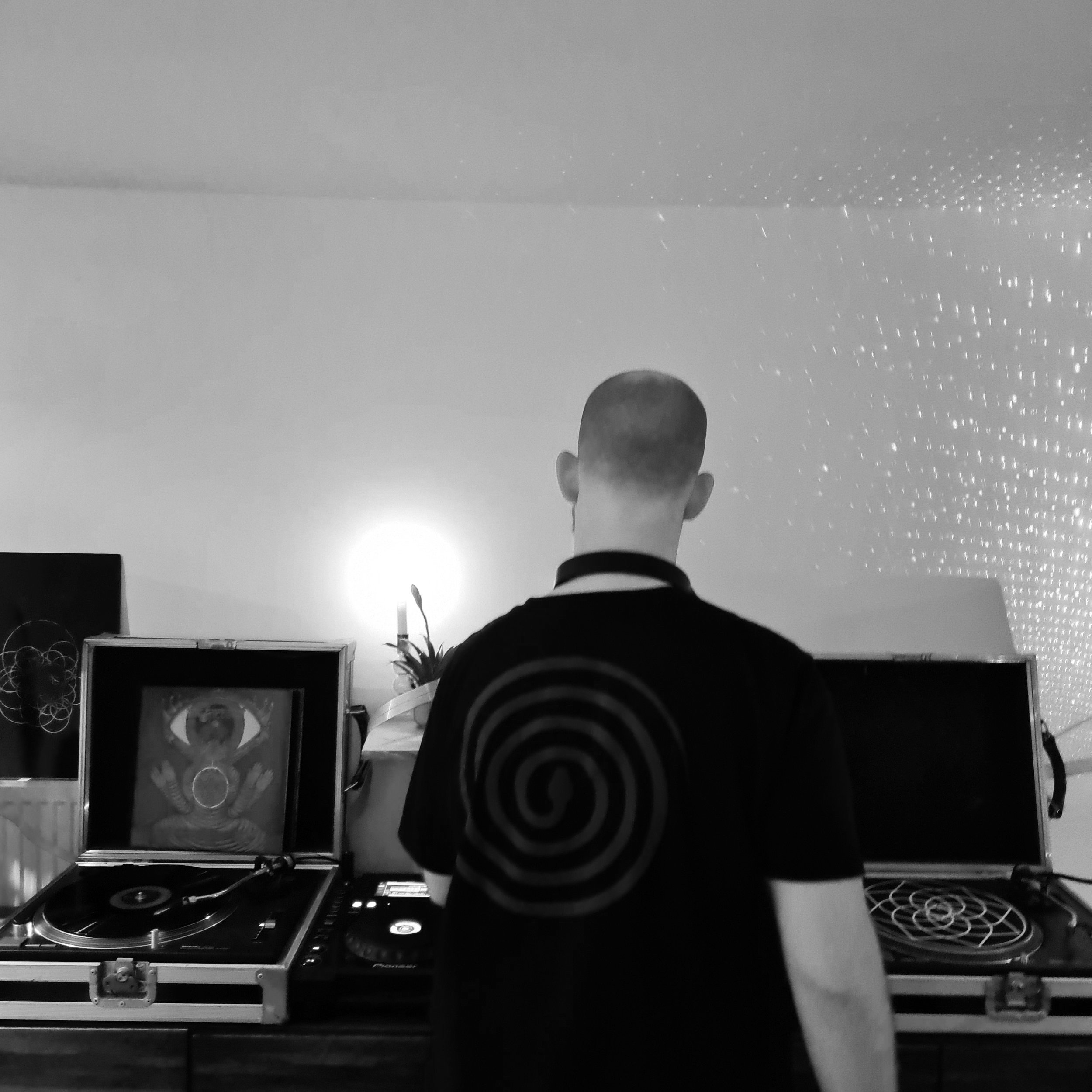
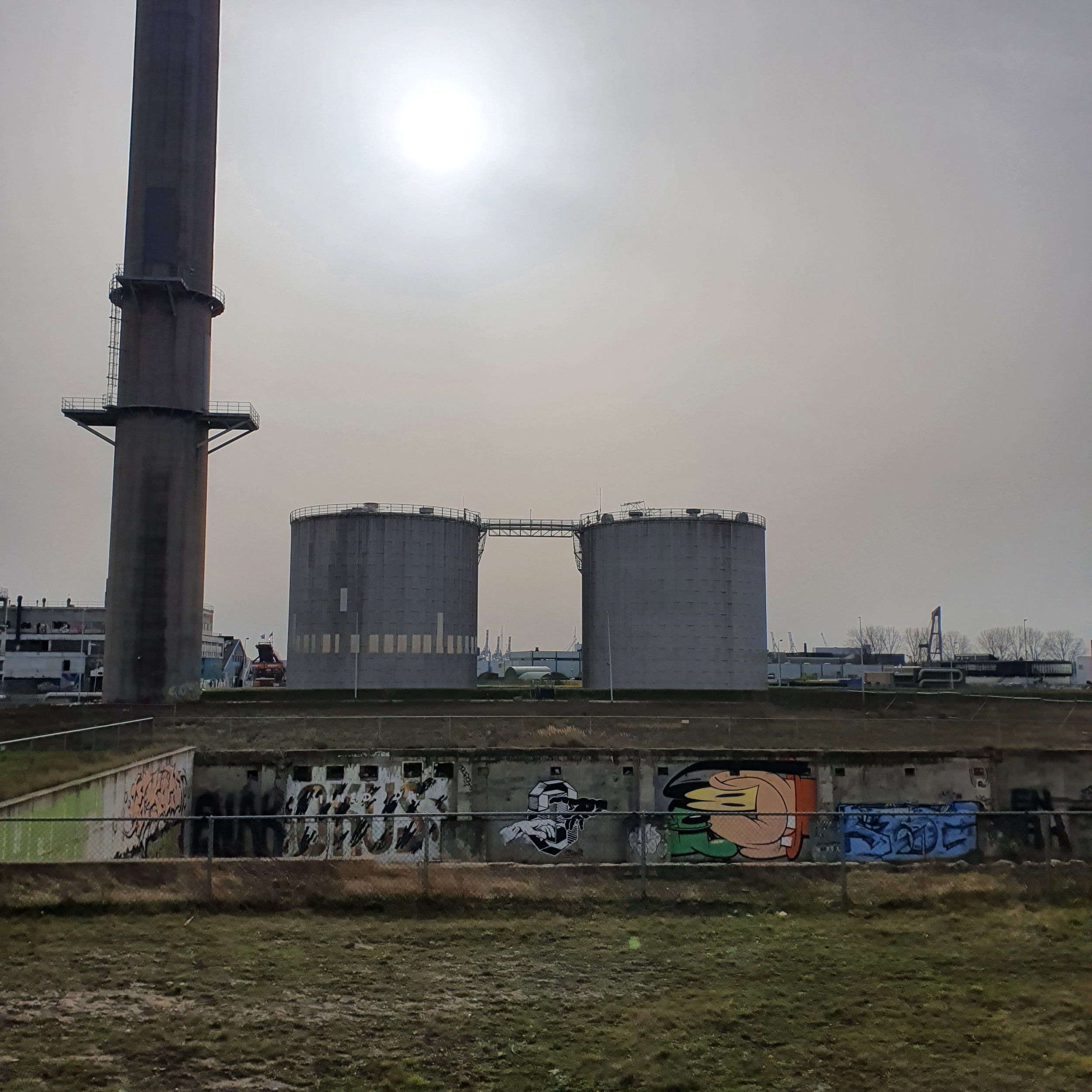
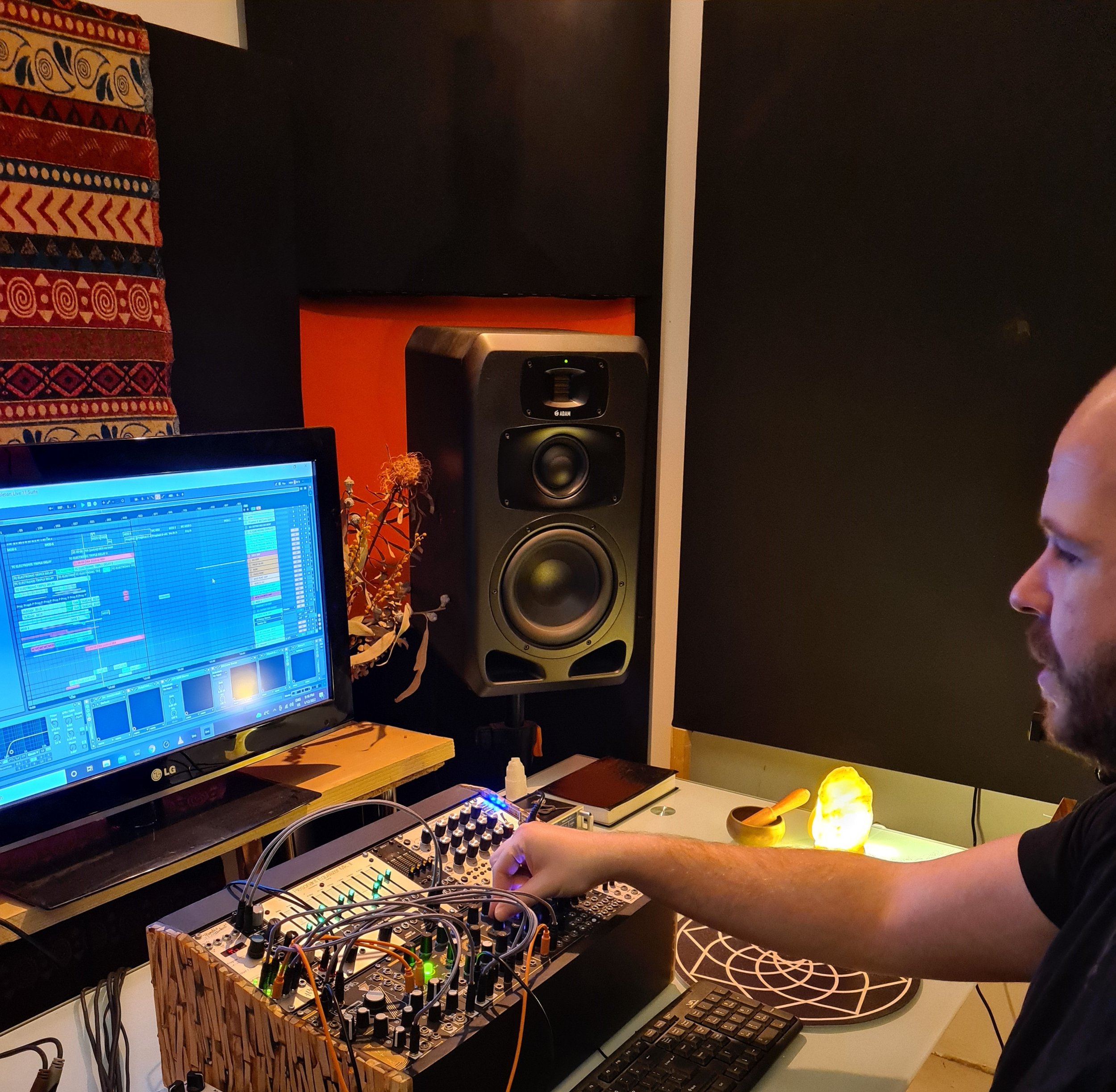
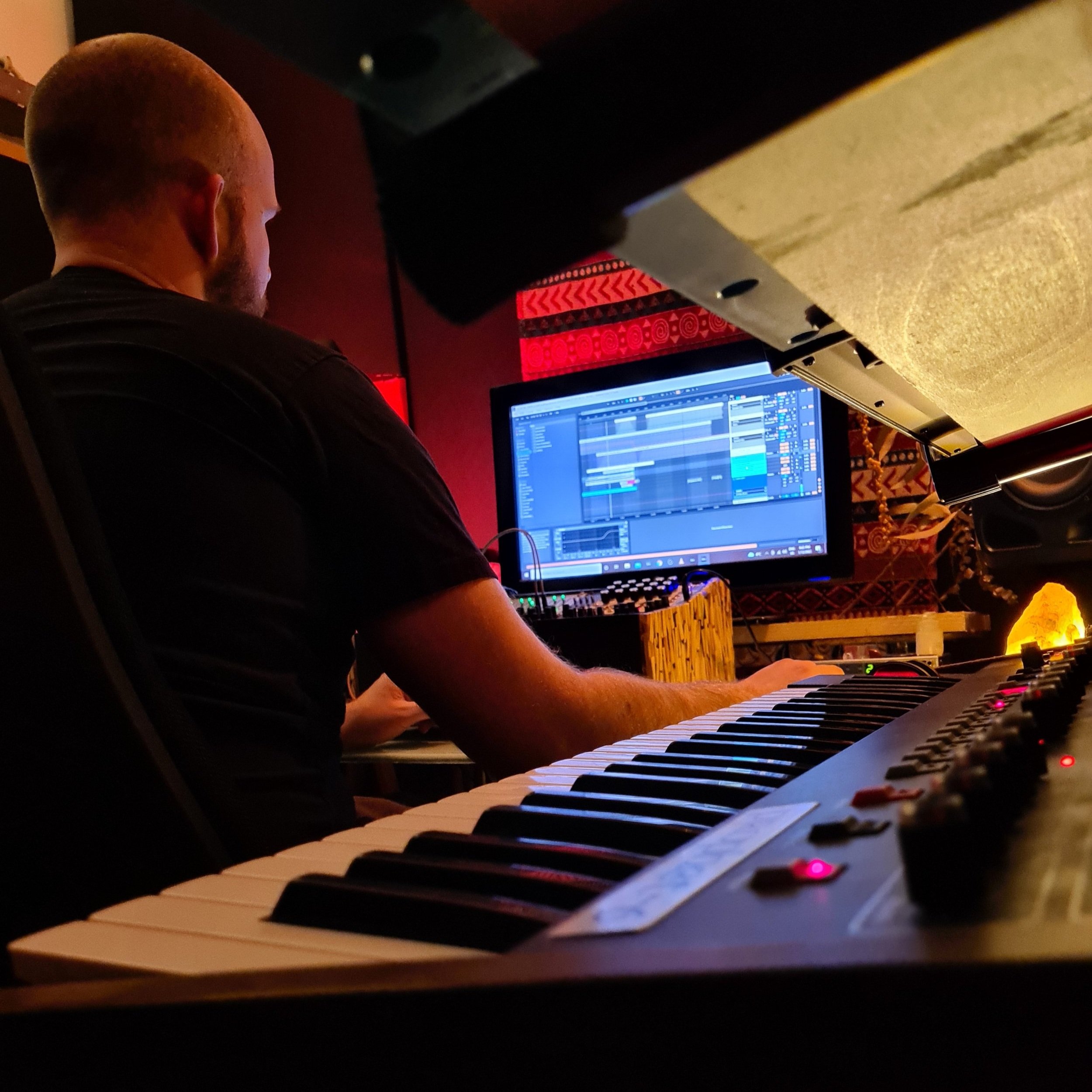
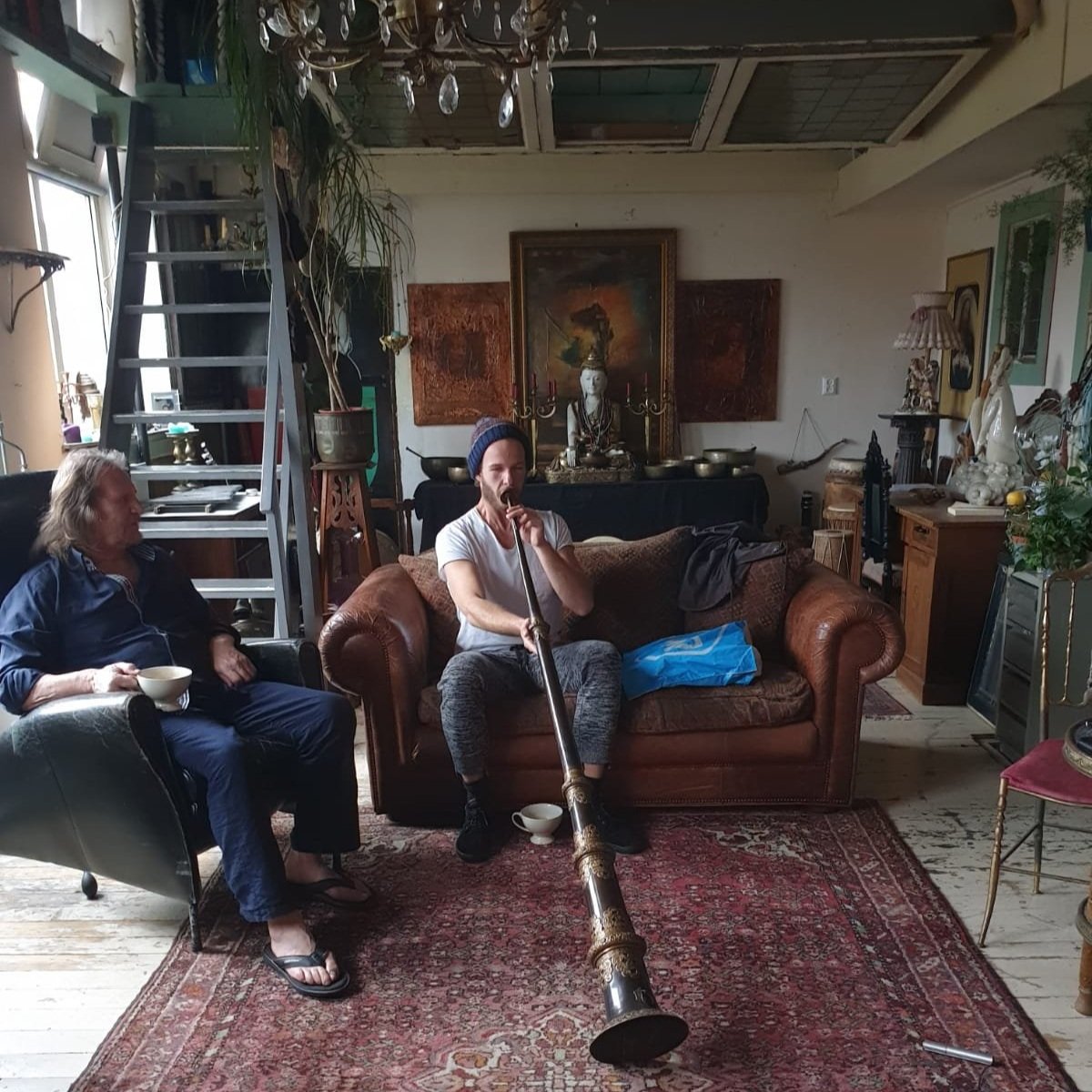
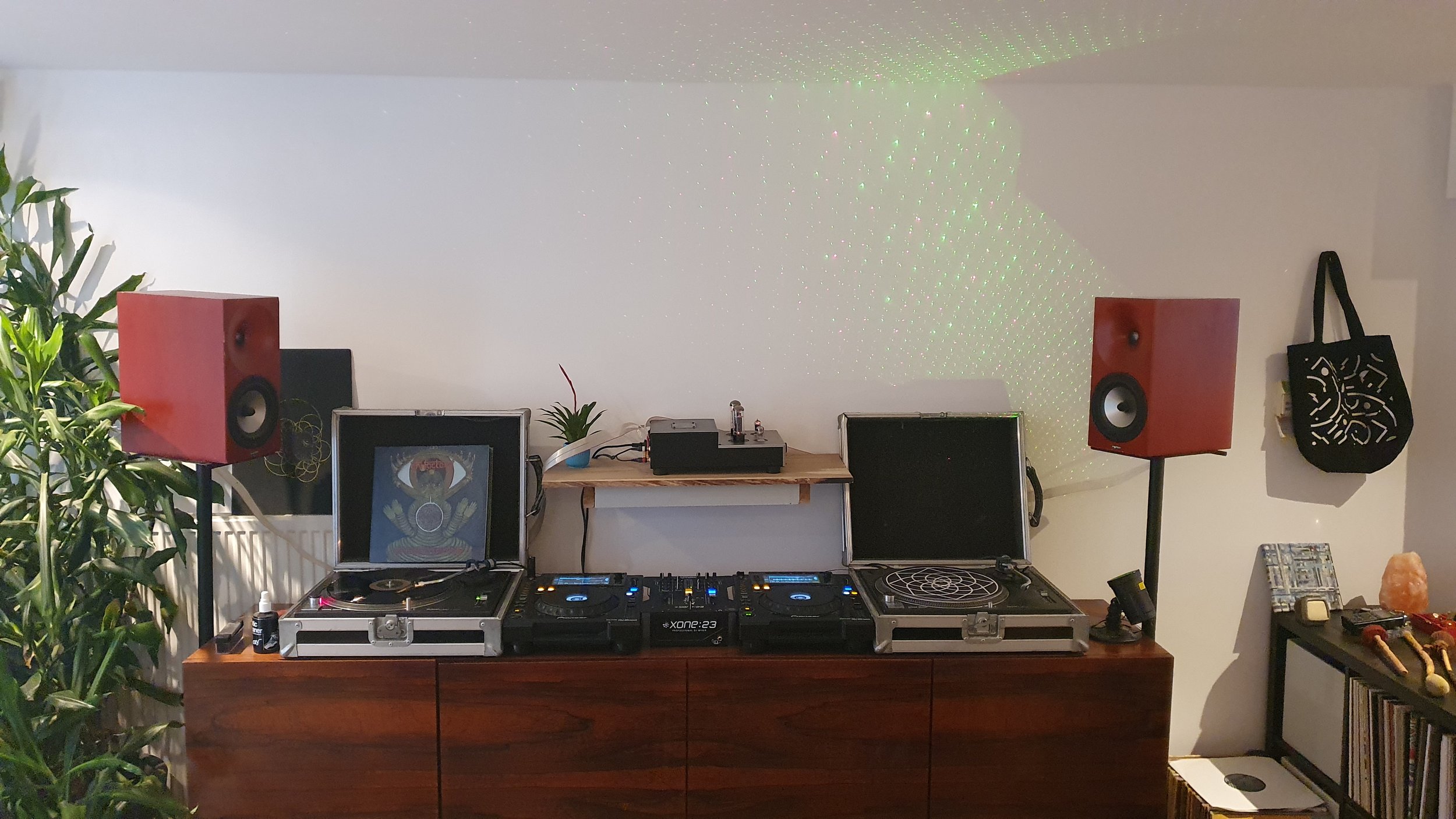
‘’Aside from that I have my Elektron Analog Rytm, it’s a drum computer and you can do an awful lot with it, but at the moment I only use it for samples. I feel like to create a sound with one of the oscillators from it, you’re fighting a lot with getting the sounds right, while just a sample generally works great if you tweak it a little bit and this keeps me in the flow to jam. I want to be in a free flow, rather than be busy with whether it sounds right, or if it’s fitting and correct. Now I recently bought the Behringer 808 to use that for my drums, because it does what it does and you use some compression and an EQ and you’re basically done, but I still need to try it out. I don’t need to really synthesize my own kicks and spend hours on just a kick drum, I prefer to focus on the atmospheres.
Recent DJ gigs, short and long-term vision for the label, and the emotional message in Rambadu’s music
After a detailed insight into Rambadu’s flow in the studio, I wanted to step away from production and ask about his recent gigs in 2021? ‘’Before the pandemic, I played once at an outdoor venue where a friend hosted a night. I played during daytime, and it was the first time I could play my own tracks on a big system. In summer 2021 I played in Belgium at La Nature festival, where Daniel (Daniel[i]) hosted a stage and that had a very nice vibe, I did a lovely daytime set there. It started with only a few people, but as it went on it got quite busy and it was really nice to feel that energy for the first time in a long time also with my own sound. Then in November, I had another gig in Portugal, this time in a club called Gare in Porto. This was also a great experience, I only had to go out of my comfort zone a little and play a bit more upbeat. But it was really fun to just go with the flow and to know for myself that I can do that too.’’
Rambadu playing at Club Gare in Porto
Now that people are gradually becoming more familiar with Rambadu, I think that the invitations for gigs will also increase. I don’t believe that people that are not producers can’t be DJs, but I do believe that if you are a producer, it is more likely that you might get booking requests. ‘I would love it if I could do 1-2 gigs per month once everything returns back to life and keep my focus on music. I really like the idea to also venture into doing educational things and to create some products like modular cases, and be busy with music in general and not only as an artist.’’
Since Paul is constantly giving me hints about his future plans and desires, I decided to pose the question directly and ask if he had a long or short-term vision about running his label next to everything else? ‘’I’m thinking more in long-term than short-term, I feel that the first release flowed out of my travels in Australia and Nepal, where I did a lot of field recordings and sketches. I had my laptop with me in the mountains, and that’s also why there is a certain energy in the music that came from being in that place in that moment. The second and third release I made in The Netherlands, and it has a different energy and you really feel that. So I’ve had this idea in my mind for quite some time to travel with my music. Just going places where I can record the vibe, my experiences and my interaction with the locals. Maybe even find a tribe that plays percussion and let them play their instruments and record that over a beat I made, and see what comes out. Life and the interactions with my surroundings really trigger my interest. I think that shines through my productions all the time. Now not being able to be in nature so much is hard, so I'm making something where I try to transport myself into nature without really going there, kind of like a simulation. It's an intense selection of recordings I made and it shows what nature does for me, it translates that joy and shows how much I cherish the power of it. The tuning I’m using is also more of an organic tuning – a Solar Spectrum Pitch. It’s based on the re-invention of a very old tuning system and has links to the color spectrum, so certain frequencies are linked to color and that is what makes it more organic, I feel. I don't think you really hear it’s a different tuning, but it has slightly different overtones.’’
For the audience, which consists of mostly people that aren’t so educated on the technical side of things, these intricate subtle differences in sound are very difficult to spot. At the end, it doesn’t really matter if everyone fully ‘gets it’, as long as you are evolving within yourself and as an artist. You should just keep doing what opens your horizons, inspires you and gives you new points of view. Essentially, one day people will ‘get it’ too. ‘’I agree! You should find something that inspires you – whether it’s a tuning system or new instruments, just keep reinventing and challenging yourself!’’
‘’You should find something that inspires you – whether it’s a tuning system or new instruments, just keep reinventing and challenging yourself!’’
What a great piece of advice! With that we are slowly approaching the end of our conversation, and I wanted to go a little deeper and ask what kind of feelings and emotions is Paul putting into his music? What are things that trigger him in spiritual terms, that he wants to express through his output consciously or maybe even subconsciously? ‘‘Definitely a certain calmness. I am generally a bit impatient for meditation, but I am also quite interested in this field. Being able to just close my eyes and focus on my breathing, my heart rate, makes it possible to enter this visual world within myself. I noticed that If I do try and put in the practice, I can get into quite a fantasy world in my mind. This is what radiates this happy energy within myself, and this is something I really like to channel in my music. I also have moments when I am not happy, but am stressed but I still make music. When I go back to what I did in those moments, I hear my own stress and it makes me relive it again. I think that my happiest moments are when I am very relaxed, and don’t have too many distracting things on my mind. Putting a bit of practice in focusing on yourself and the world, you can do quite a lot with your own mind. For me, that’s interesting to observe where it can go.’’
As I am quite the opposite character, I take Paul’s words as a good lesson that I will try to implement. Especially nowadays, it’s a very valuable skill to have - to be able to remain unbothered, zen and accepting of what is coming your way. Speaking of music, I definitely feel everything that he just described when listening to his music, it is very pleasant, comforting and evoking only positive emotions or beautiful melancholia.
With that we concluded our conversation, and I feel extremely charged and optimistic about the upcoming year! I am grateful that I got to invite such a wonderful person and artist to be part of the Nachtblumen journey. To properly showcase his sound, Rambadu recorded the first podcast for this year, and I could not have imagined a better start. Press play and enjoy this gorgeous organic journey into the depth of your mind and feelings.

